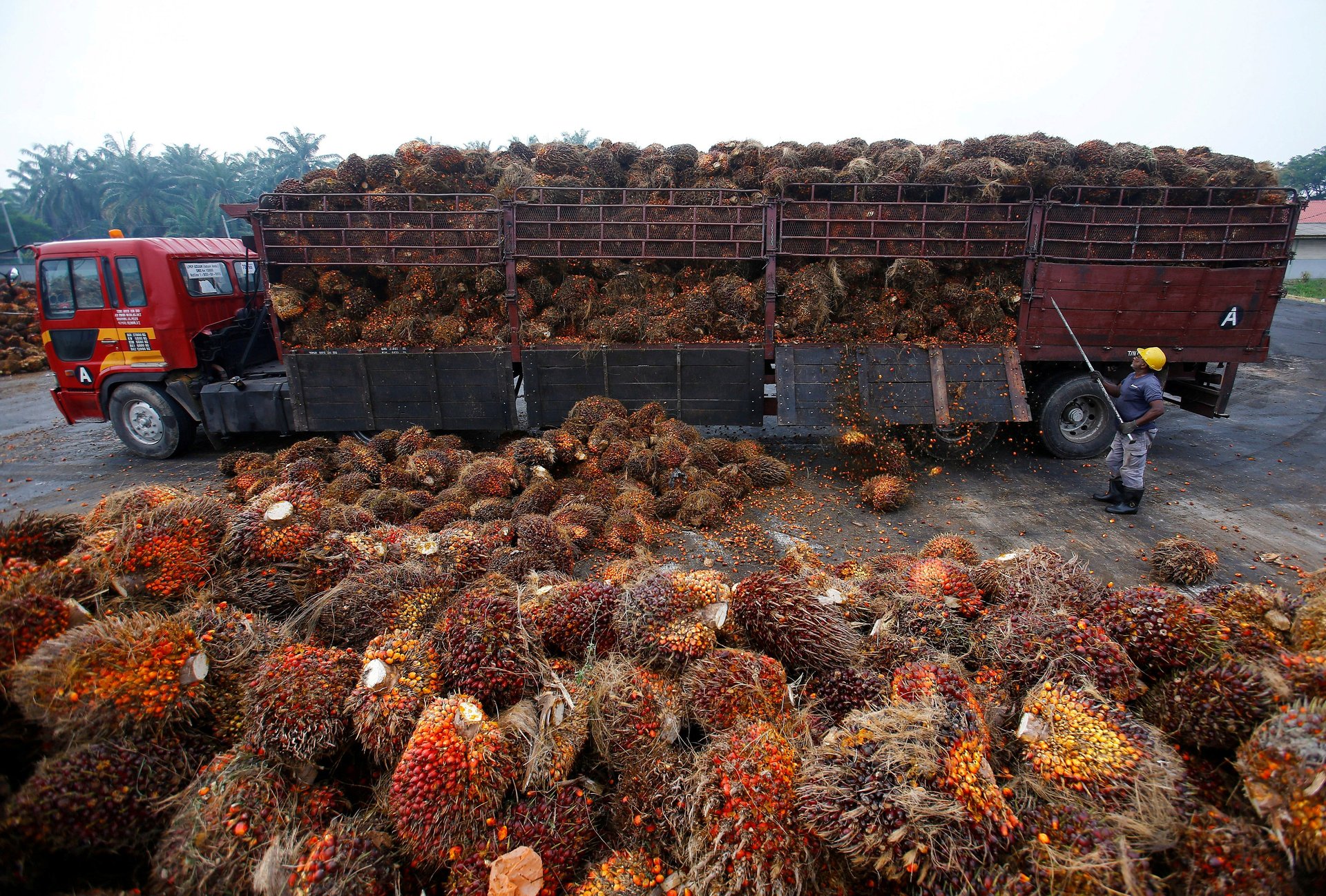A palm oil giant has been sanctioned over forced labor and trafficking workers
FGV Holdings Berhad isn’t having a great week.


FGV Holdings Berhad isn’t having a great week.
First, the colossal palm oil giant, owned in part by the Malaysian government, posted its second consecutive quarterly loss, attributed to falling crude palm oil prices. Then today (Nov. 29), the Roundtable on Sustainable Palm Oil (RSPO) announced it would be sanctioning the company formerly known as FELDA Global Ventures. The charges include forced labor, complicity in the trafficking of workers, terrible living conditions, widespread illegality and over 25 breaches of the organization’s sustainability certification criteria on FELDA plantations.
The RSPO investigation is years in the making, and follows a damning 2015 story by the Wall Street Journal detailing accusations of industry and FELDA involvement in horrific people smuggling: “Traffickers threw migrants’ bodies into the sea,” the Journal reported, “after slitting open their abdomens so they would sink.”
In a letter to FGV Holdings’ vice president, RSPO complaints panel chair Henry Barlow laid out a list of infractions committed on company plantations. Some of the more minor examples involved locking workers’ passports away and requiring written permission to leave the plantation. More serious charges included housing workers in “dire” conditions, supplying them with contracts in languages they could not understand, forbidding them from terminating their contracts, and subtracting seemingly arbitrary sums from wages for food, water and electricity. FGV has a matter of months to address these issues.
You’ve almost certainly bought products produced on its plantations. FGV is the third largest palm oil company in the world, and supplier to brands such as Procter & Gamble, Hershey’s, Unilever, Mars, PepsiCo and Nestle. The oil works its way into all sorts of products, from droplet-shaped chocolate bites and hazelnut chocolate spread to bathroom essentials such as toothpaste and shampoo. By opting for palm oil products supported by RSPO, companies hope to protect consumers by choosing sustainably, ethically produced palm oil—but labor violations seem to be rife nonetheless. Major Indonesian palm oil producer Indofood were sanctioned just days ago.
In a statement to environmental organization Rainforest Action Network, Glorene Das of the Malaysian human rights organization Tenaganita called for international buyers and financiers to hold these companies to account. “The RSPO’s confirmation of forced labor on FELDA’s plantations is a damning indictment of the company’s modern-day slavery practices and its complicity in human trafficking,” she said. “We cannot allow these crimes to persist.”
In a statement, FGV announced that, as a result of the sanctions, it had frozen all new recruitment of workers from
This story has been updated to include a statement from FGV.